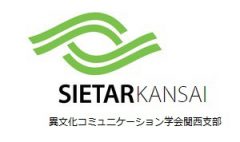Speaker: Ms. Seiko Furuhashi (Assoc. Prof. Osaka Gakuin Univerity)
Date: February 21, 2015 (Saturday)
Time: 14:00-17:00
Venue: Osaka Gakuin University ( Classroom No.1, B1, Bldg. 2) 36-1, 2-chome, Kishibe Minami, Suita-shi, Osaka (5 minute walk from JR “Kishibe Station” Hankyu Kyoto Line “Shojaku Station”)
Fee: Free for members and students; 500 yen for non-members.
Language: Japanese
Social event: Dinner after the session at a restaurant. Reservations for dinner required by Feb. 16 (Mon.) Contact fujimotodonna@gmail.com
Description of presentation:
Hawai’i is a popular resort for Japanese tourists because you can enjoy beautiful climate without struggling with foreign language. Behind the colorful and bright image of tropical paradise, however, Hawai’i carries tragic history and various social and cultural issues to deal with. I would like to invite you to a virtual field work where you can get a glimpse of Hawaiian Renaissance activities in “Real Hawai’i”.
Presenter’s academic background:
International Christian University (Tokyo), B.A. in Sociology
University of Hawaii at Manoa (Honolulu), M.Ed. in Educational Foundations
The East West Center (Honolulu), Degree Fellow
Professional Career:
The Exchange Teacher of Japanese to the National Correspondence School (Te Aho o Te Kura Pounamu) under the New Zealand and Japan Cultural exchange Scheme (Dispatched by the Ministry of Education, Japan)
Adjunct Fellow, New Zealand Council of Educational Research
Fulbright Scholar in Residence to The University of Montana Western
Assistant Director/Internship Coordinator, Stanford Japan Center
Associate Professor, Faculty of Foreign Languages, Osaka Gakuin University
